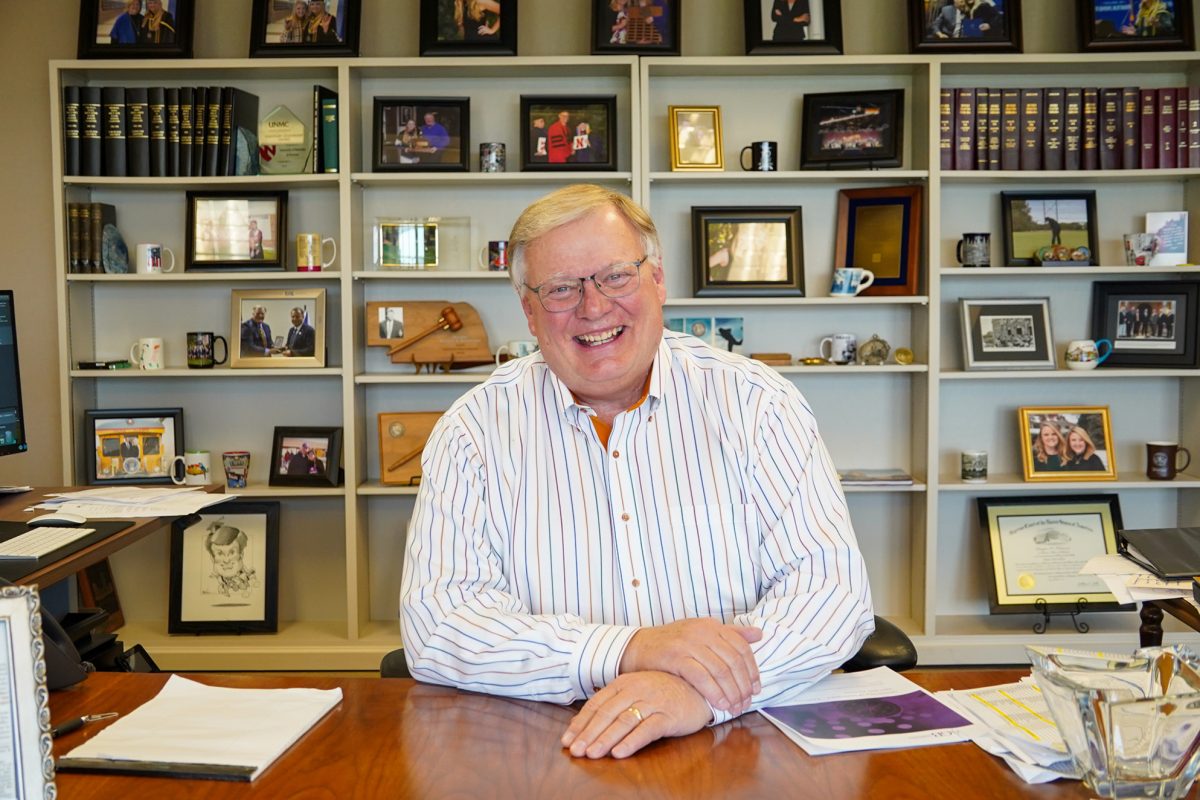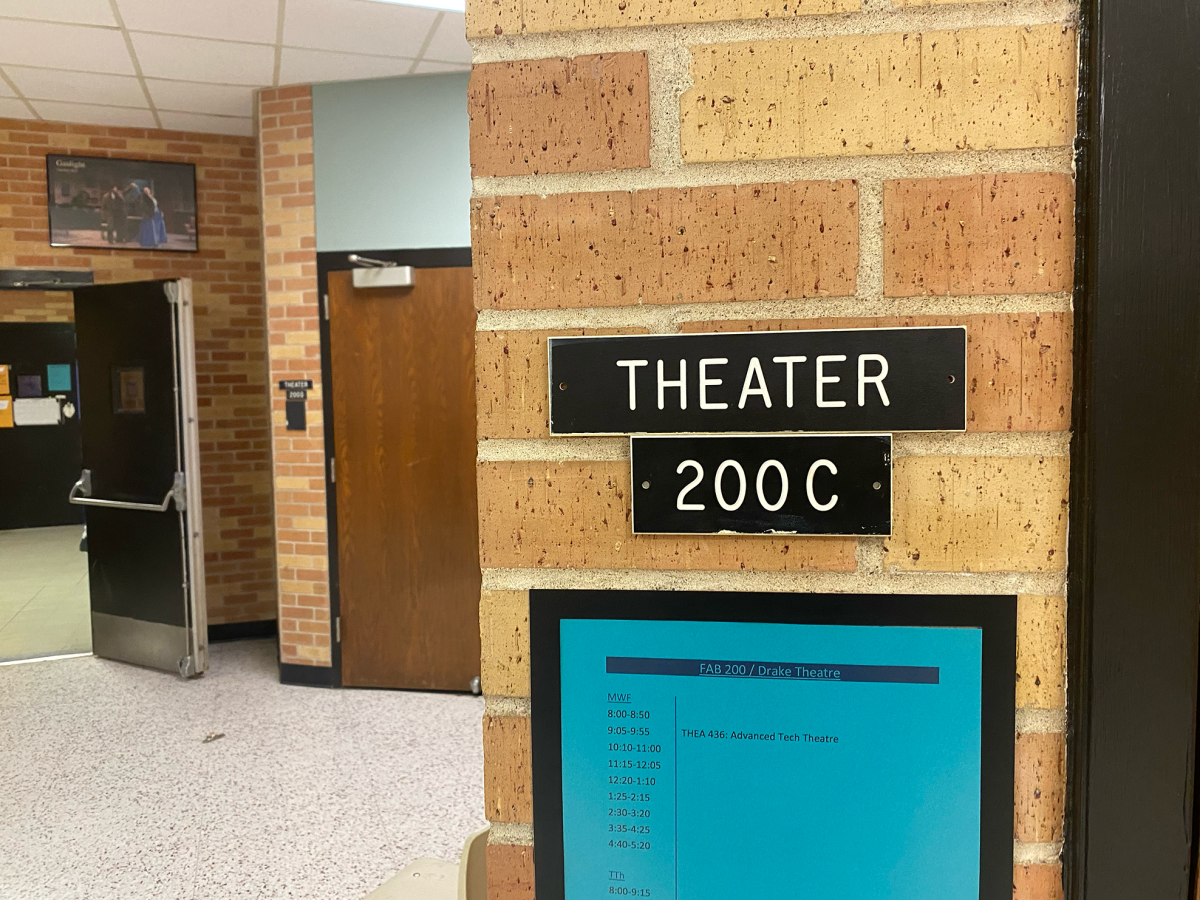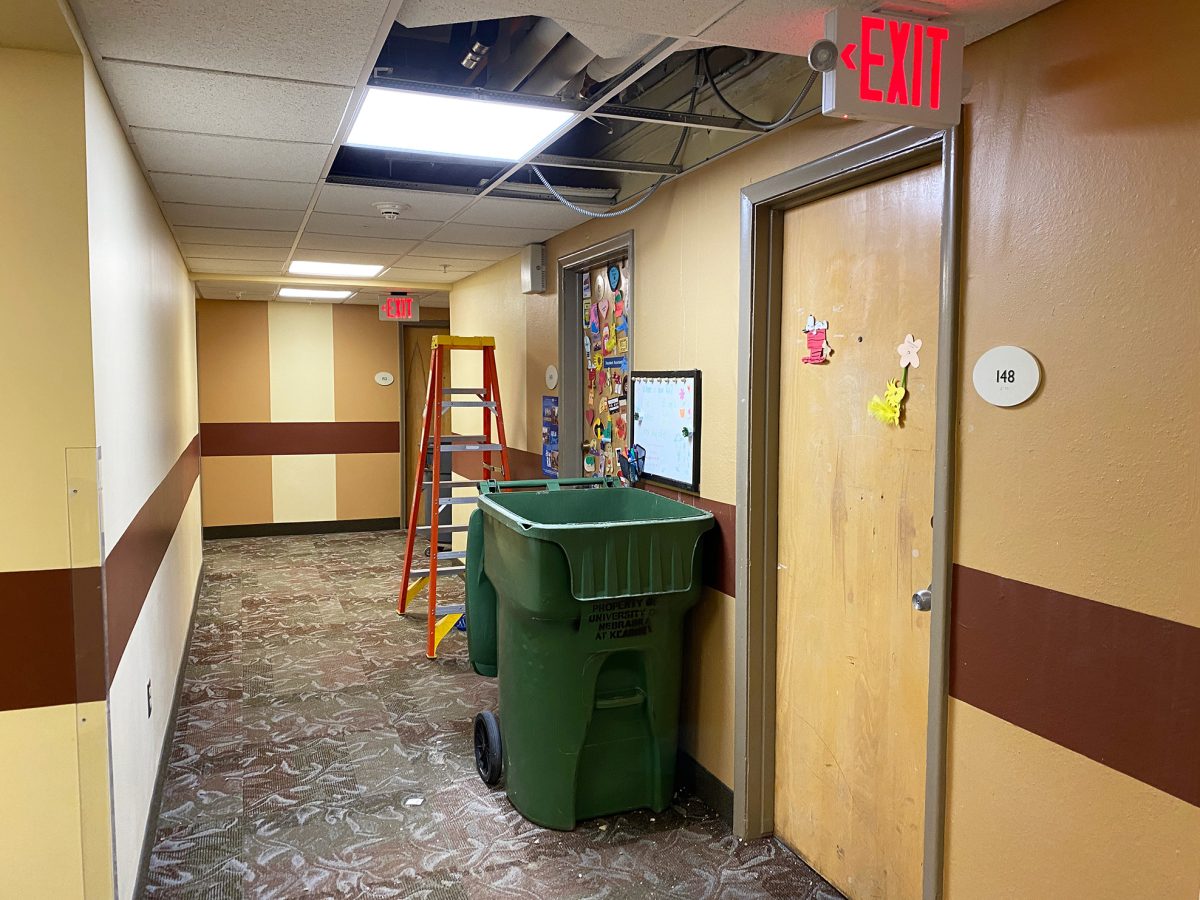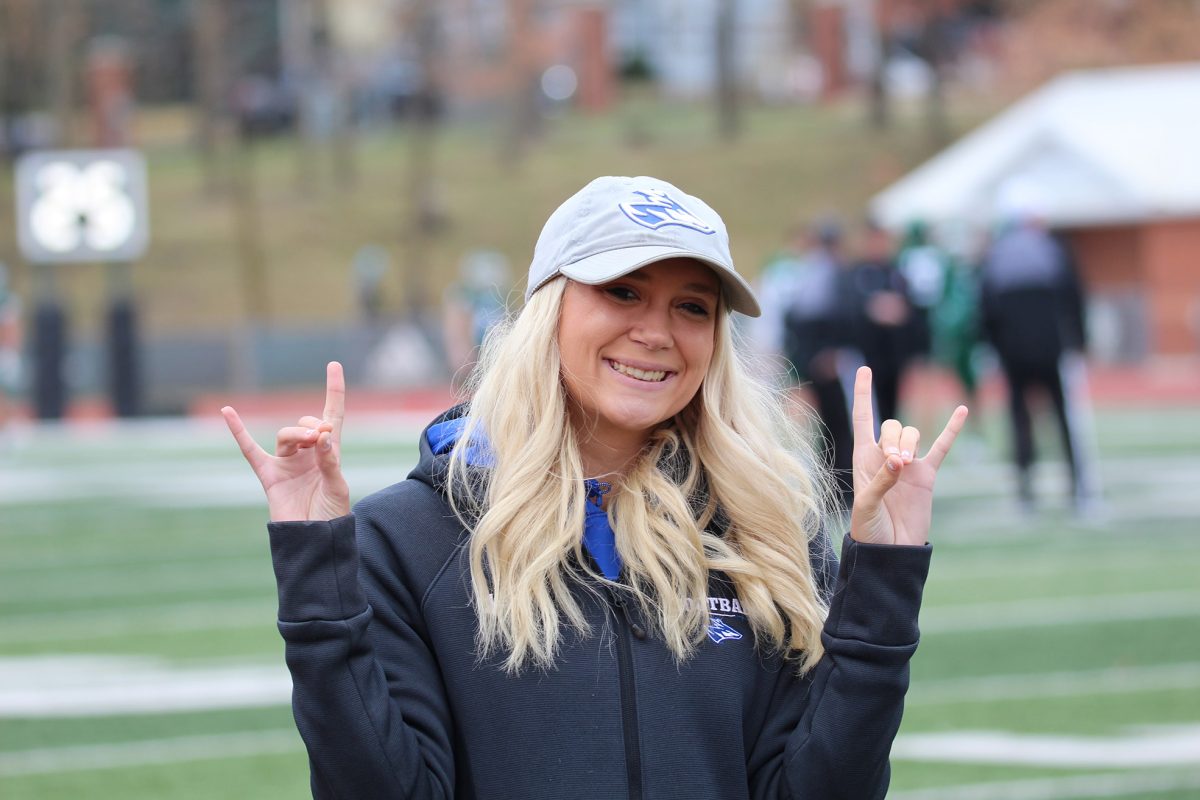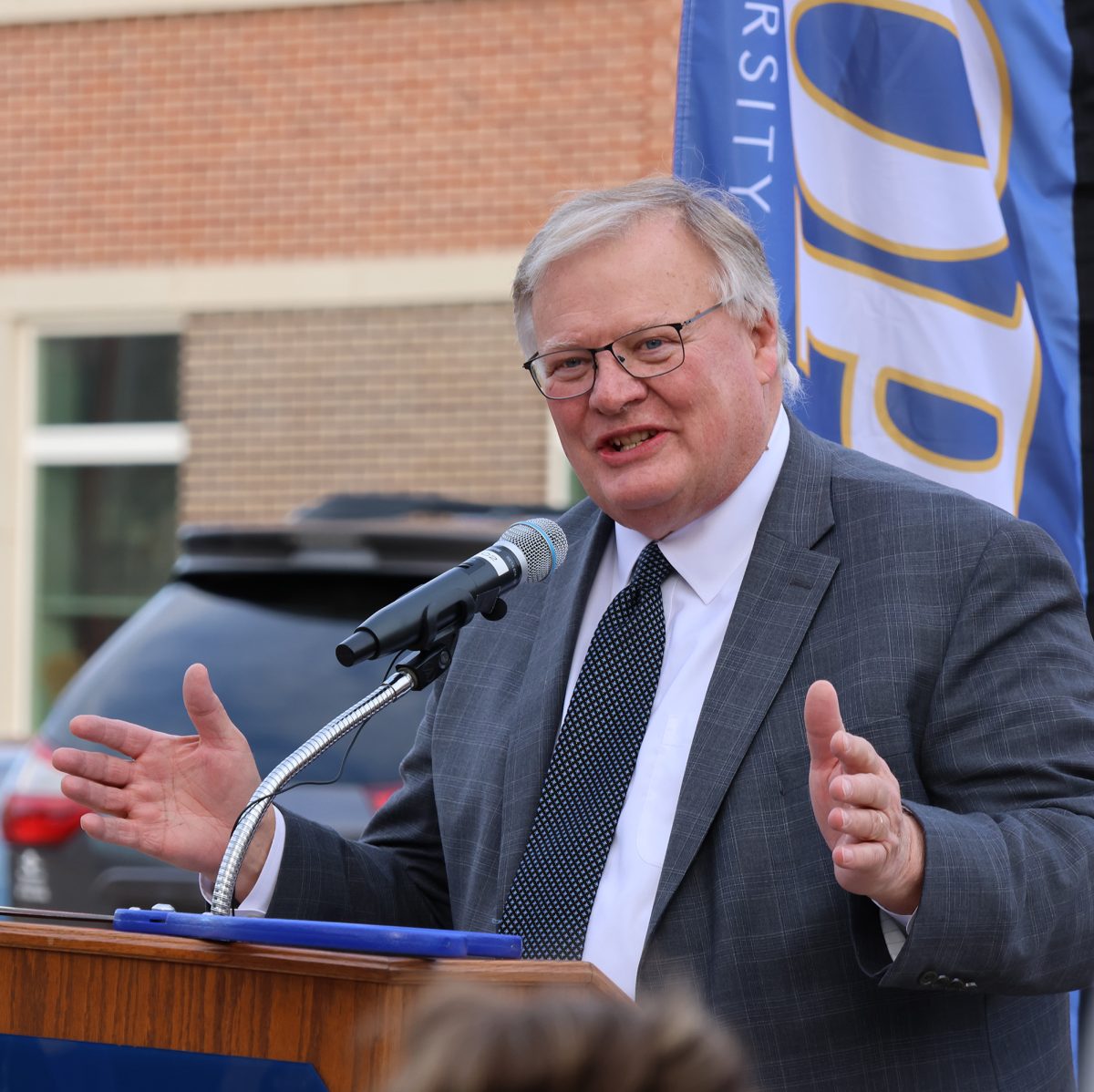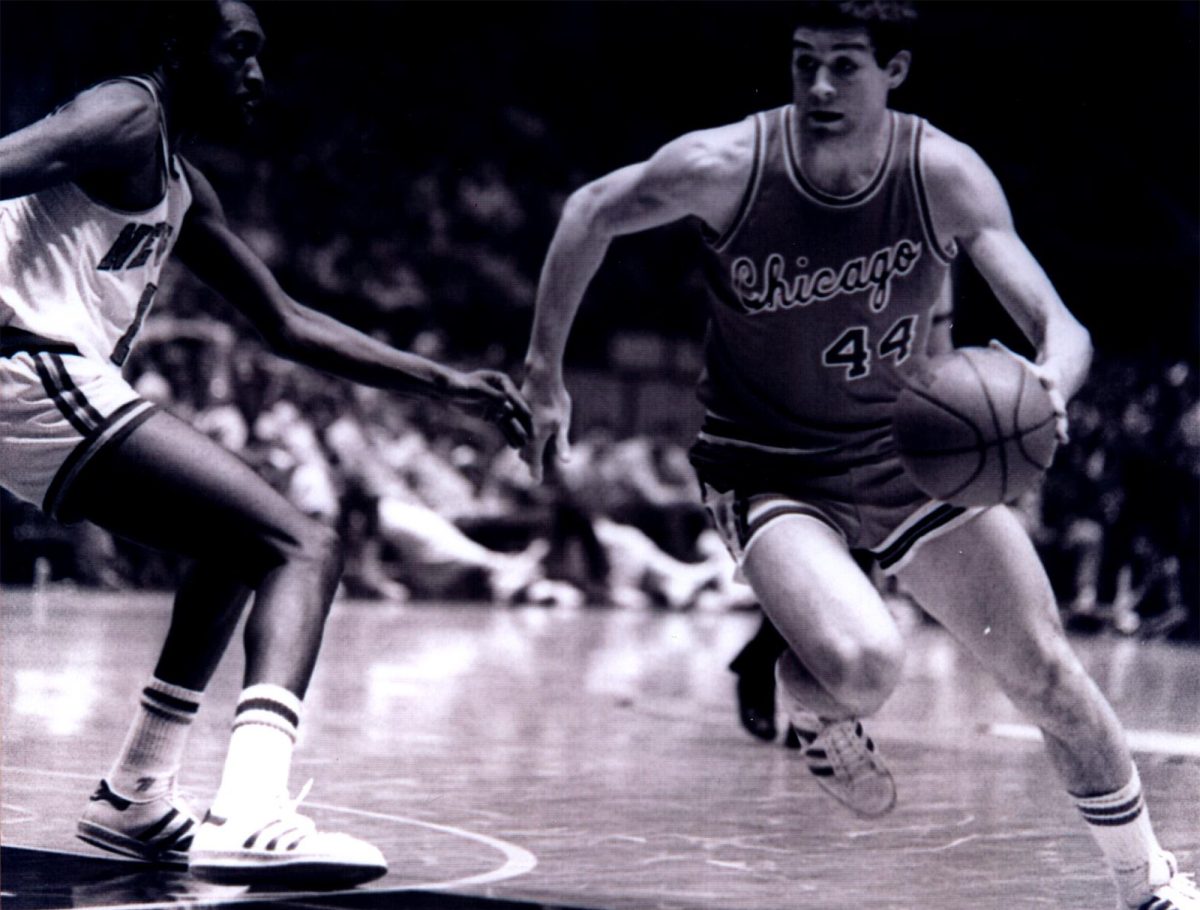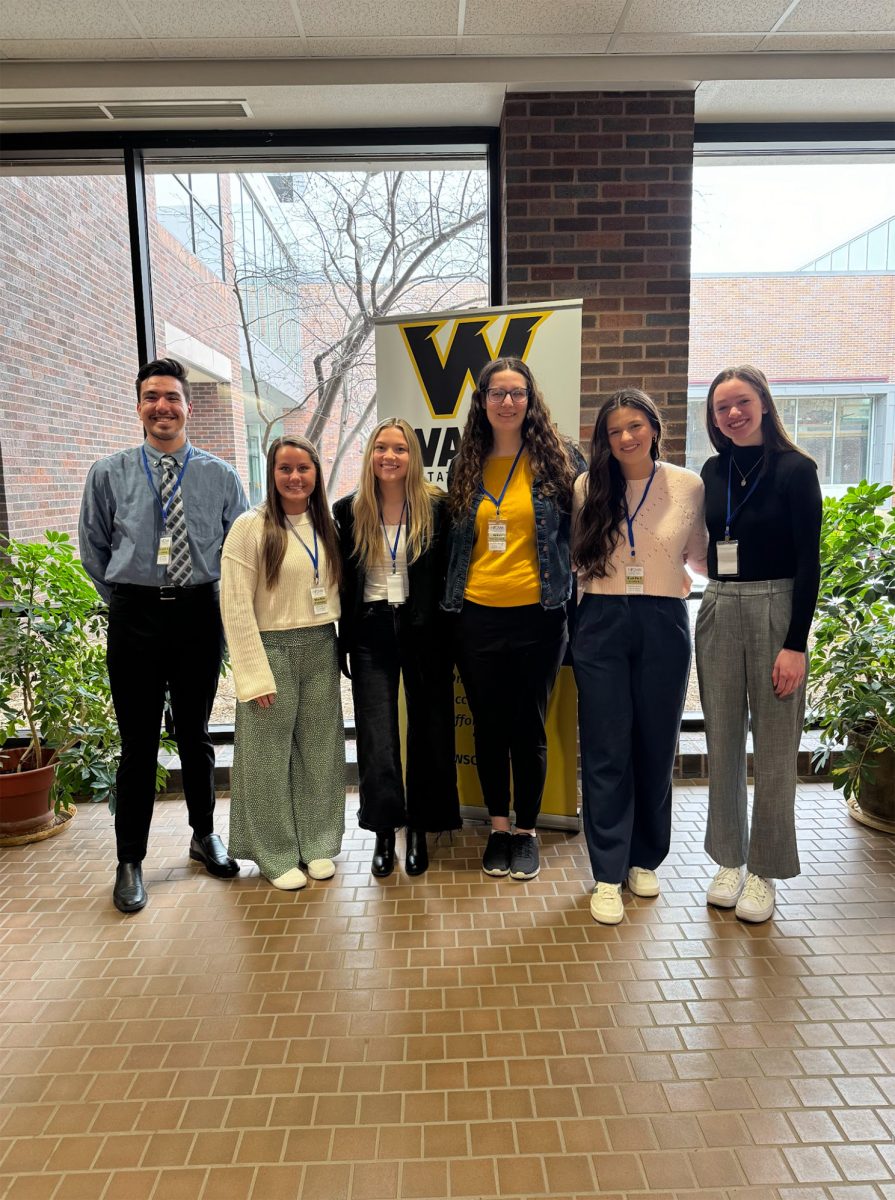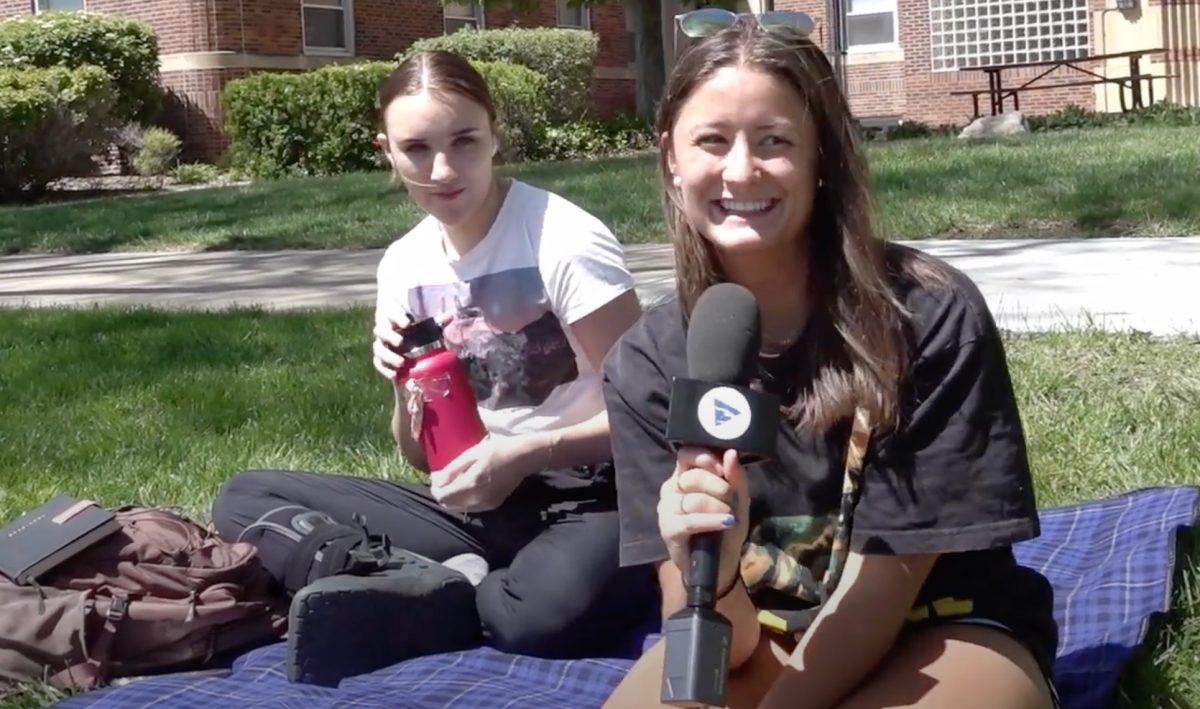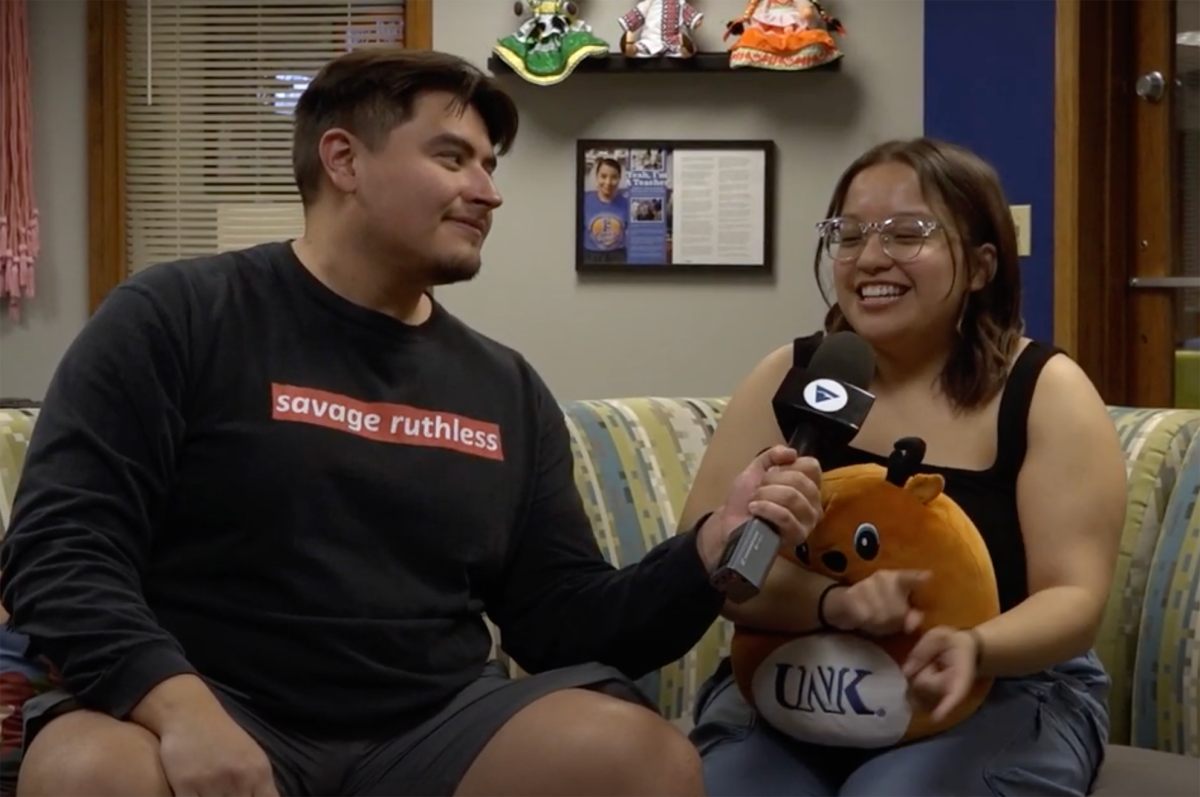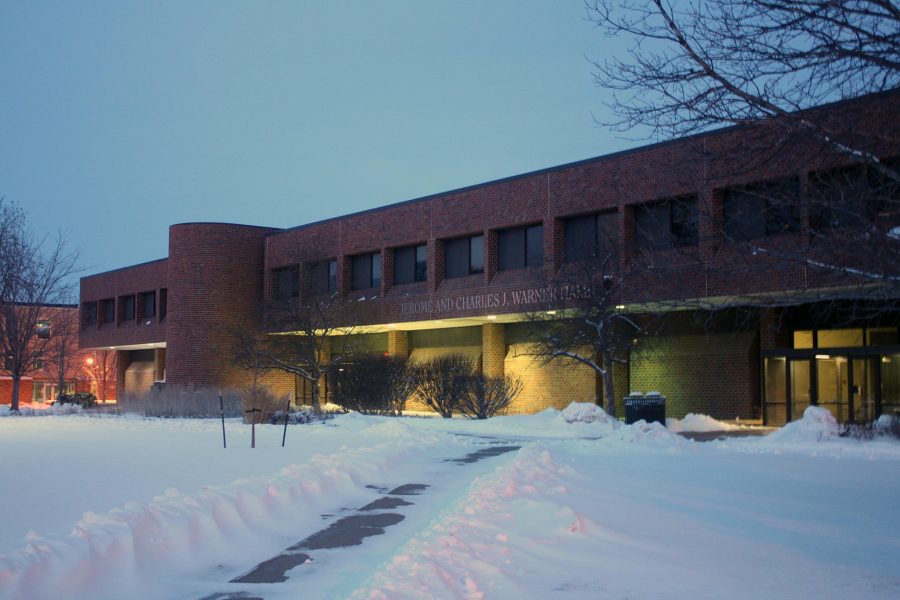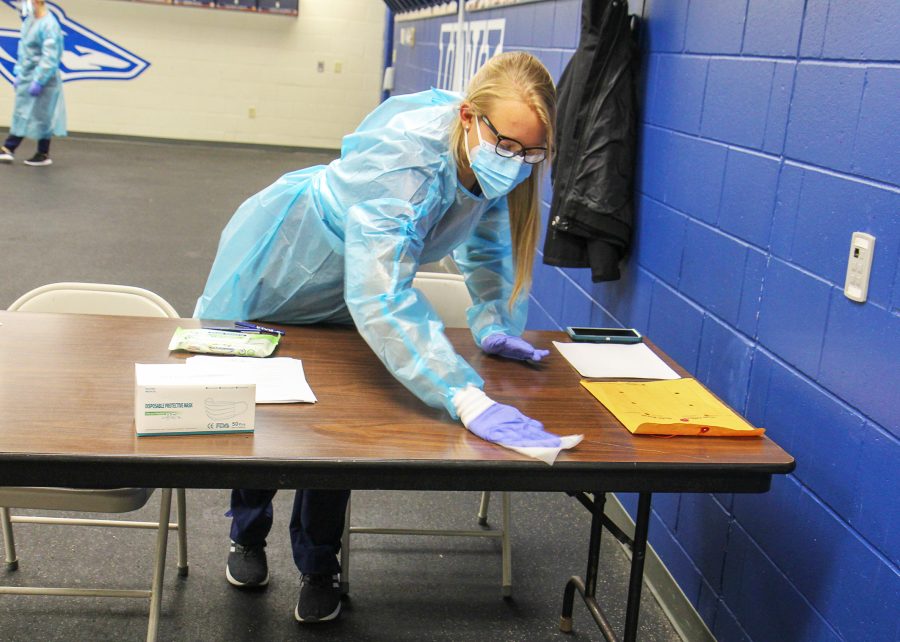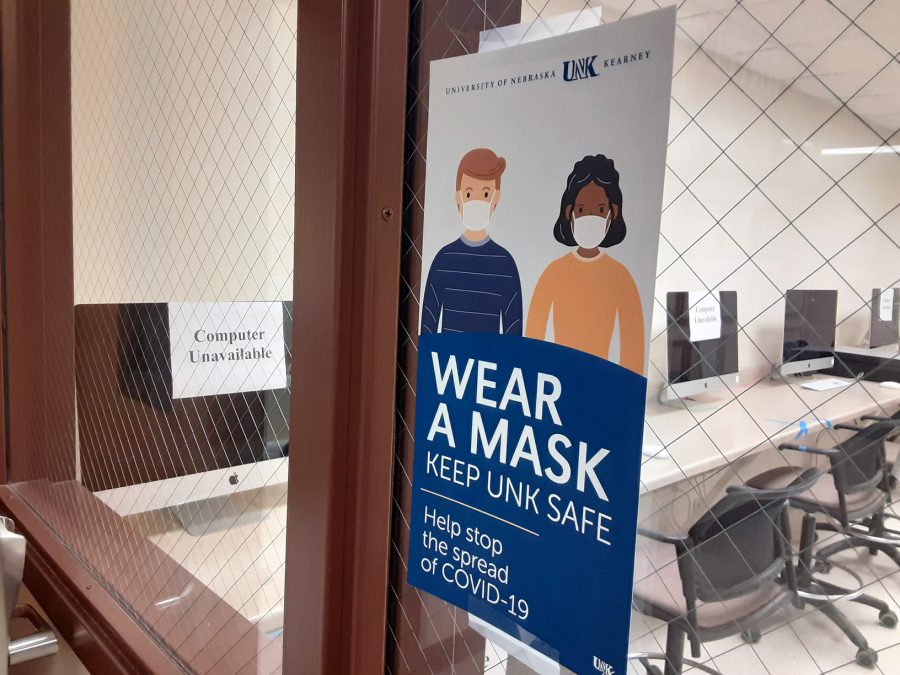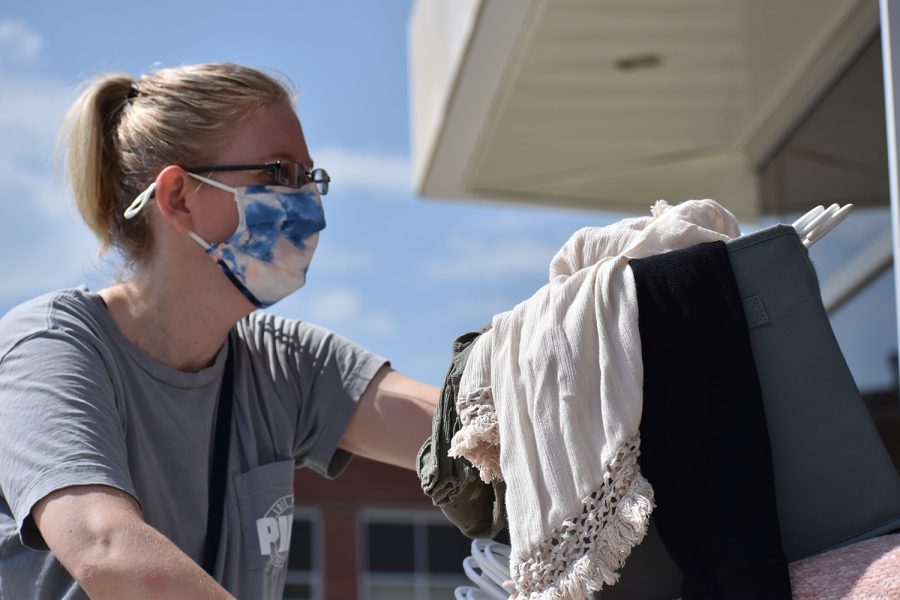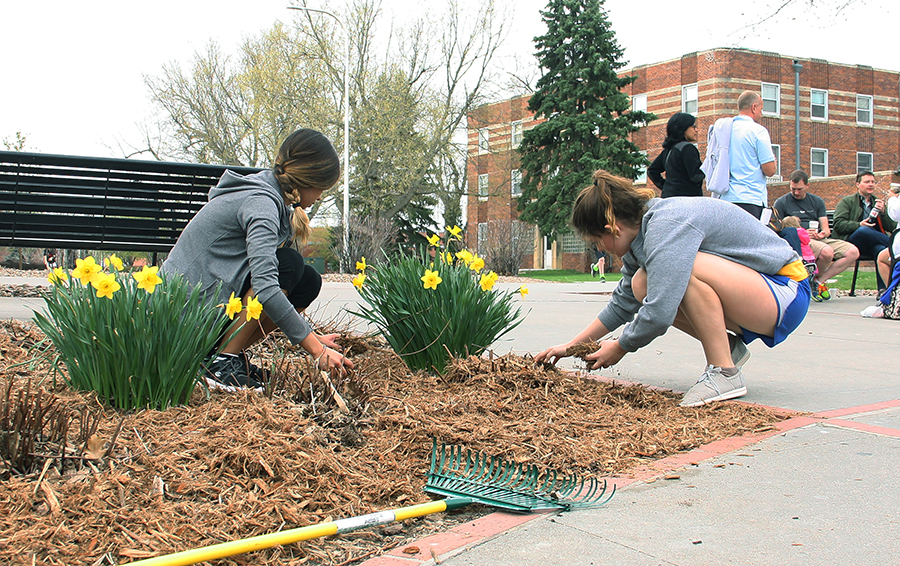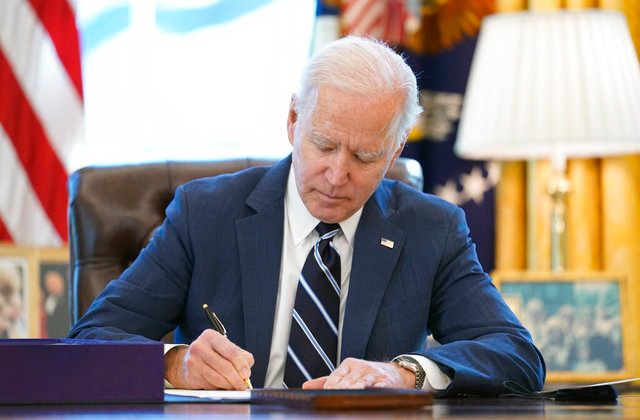liermanm2@lopers.unk.edu
UNK administration received recommendations from a Faculty Advisory Committee on how to approach a potential reduction in force last week. The potential reductions are being explored as an avenue to meet a needed $2.8 million in cuts.
Cuts would enable UNK to operate within the limits of the University of Nebraska Board of Regents’ budget approved in June of last year.
“The Board of Regents approved a three year budget, and we’re working through that first year,” said Jon Watts, UNK’s Vice Chancellor of Finance and Business. “We know that the way the budget was approved, and [with] the obligations we have related to staffing faculty operation, we need to cut basically $2.8 million, or about 3.9% of our budget. They didn’t specifically say when you had to do it, so we’ve done things to try to get ahead of it, but it basically needs to be began over a three year period.”
The first of the cuts came last summer, when Chancellor Doug Kristensen announced $800 thousand dollars in cuts in a first wave of position eliminations, bringing the total amount left to be saved down to the roughly $2 million it stands at now.
A similar push to meet cuts is happening across all of the NU system’s campuses, with economic pressures from COVID-19 motivating the Board of Regents’ cuts. Last month, Governor Ricketts proposed a budget to the Unicameral that included full funding for the Board of Regent’s request, with a 2% increase each year for the next two years. This request was lower than in the last biennium, when the Board of Regents requested budget increases of 3% for 2019-2020 and 3.7% for 2020-2021.
UNK last made cuts in 2018, when it cut 38 positions and eliminated three sports teams, including baseball.
Governor Ricketts’s proposed 2021-2023 budget still has to pass the legislature’s review.
Some critics say the request from university leadership could have been higher.
“Our leadership in Varner Hall could have been more active and more assertive in trying to get an increase from the state,” said William Avilés, UNK Education Association President. “That would have helped to not eliminate these cuts altogether, but at least mitigate them and lessen to the extent that they’re gonna have to be.”
Avilés participated in the negotiating of both the current and upcoming collective bargaining agreements that each require the formation of a Faculty Advisory Committee should the university seek to make a reduction in force. As part of the agreement that will become active this summer, a .65% raise for faculty members was negotiated between the Board of Regents and UNKEA, up from the Board of Regent’s proposed .5% raise for the majority of faculty during this financially stressful time.
Beyond stronger advocacy from university leadership, more assessment of the available resources, including administrative salaries could have been considered.
“We’re not convinced that these resources aren’t available through either a combination salary reductions amongst the upper administration, or in some reprioritizing of funds for the system as a whole,” Avilés said. “We don’t feel that the argument has been made clearly that there is a necessity of these types of cuts. I’m not satisfied that there aren’t alternatives to the reduction in force.”
While faculty cuts loom, likely not all of the $2 million in cuts will come directly from faculty.
“The campus has gone through a number of budget cuts,” Watts said. “I would say we’re pretty lean. But this is still a campus wide conversation — there’s not a specific target assigned to any subgroup, faculty, staff, [or] operations.”
A larger focus of this process is addressing potential overstaffing relative to the enrollment of students in specific programs, which would be ideal targets for reductions if they became necessary.
“The circumstance that causes Chancellor Kristensen to bring this group together and form it at this time is the uneven enrollment increases in some [academic] areas as well as decreases in some areas that have occurred over many years,” said Charles Bicak, Senior Vice Chancellor of Academic and Student Affairs. “The advisory committee has taken a holistic approach. Now we’re thinking about questions administratively as the faculty are thinking about questions from their perspective as well, so we’re in a period of discussion.”
The recommendations of the Faculty Advisory Committee as of Feb. 1 included advice that the administration first look to reduce goods and services that are non-essential, followed by pursuing voluntary separations (such as retirement), reductions in administrative salaries, reorganization of campus units to eliminate duplicate efforts and, finally, considering faculty reductions.
The committee recommended units being considered for cuts be assessed using traditional means in addition to surveys of the people served by the unit in question and using metrics of transparency, centralization and current budget.
The committee further recommended three year moratoriums on the creation of new colleges and the creation and hiring of new positions, unless either of these be approved by the campus as a whole.
The committee stressed the impact reductions would have on the UNK and Kearney communities.
According to the committee’s report to Chancellor Kristensen, “Reducing force by any amount at UNK will have an adverse impact on locally owned businesses, the real estate market, and the banking community . . . We advise that if actual reductions in force become necessary, they are few in number and every care be taken in making those unenviable decisions.”
From here, UNK administrators will use the committee’s advice to inform any final decisions.
“We in administration greatly appreciate the serious diligent work undertaken by the faculty on the FAC,” Bicak said in an email. “This is a true volunteer activity… faculty were asked to join the group, but certainly were not required to do so. They all worked well together and I appreciated that they kept the greater good of the entire UNK community in mind. We are fortunate to have faculty who do indeed, work closely and effectively together across campus.”

